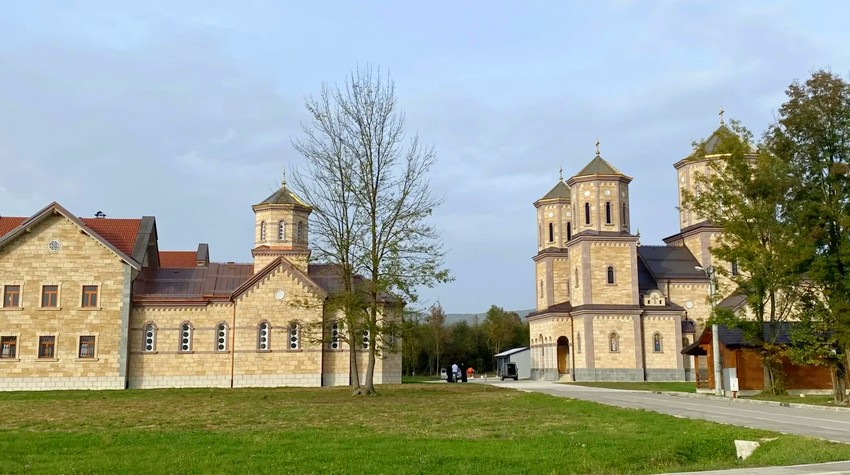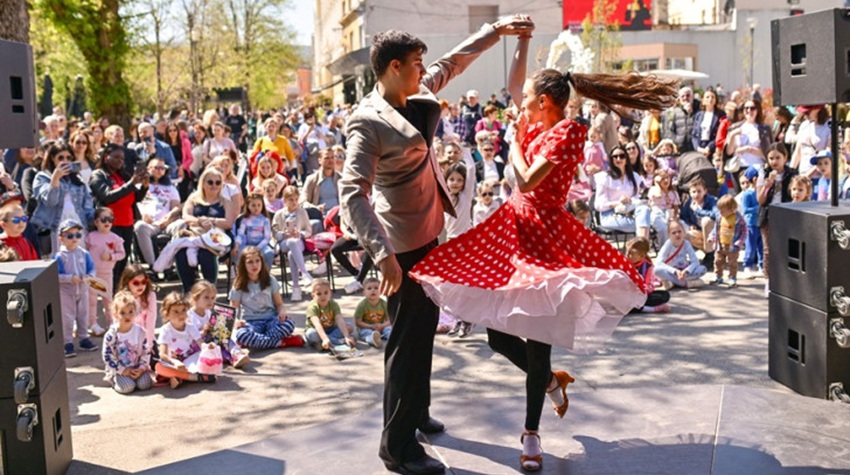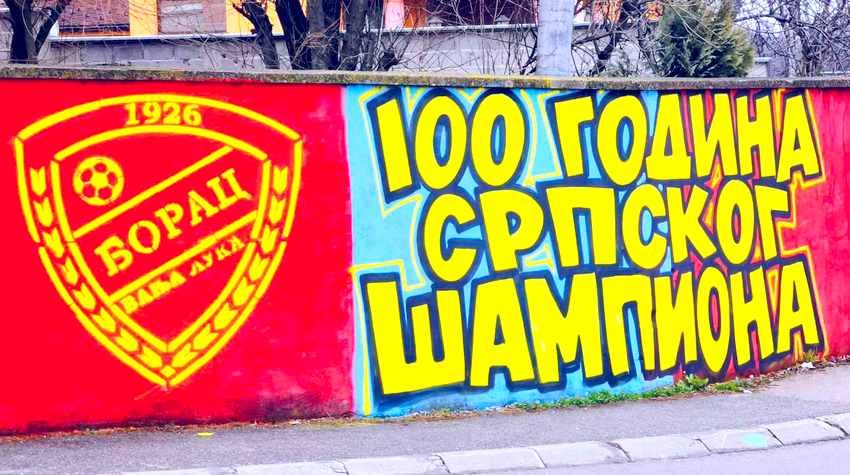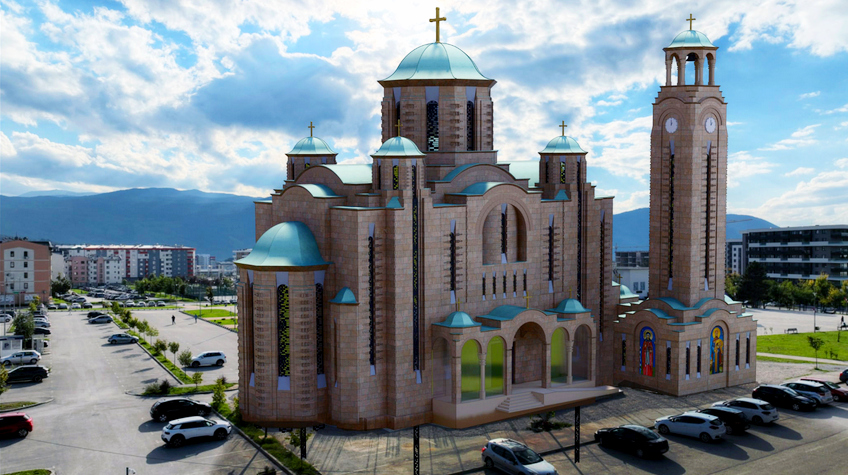"MILOŠEVAC MONASTERY: SYMBOL OF THE RESURGENCE OF POTKOZARJE"
Nestled at the foot of Kozara, near the entrance to Prijedor, stands the Miloševac Monastery, steeped in ancient lore and tradition. Its mention has been preserved in books since the 17th century, and through oral traditions, it has been safeguarded from oblivion. With the visionary zeal of Bishop Jefrem of Banja Luka and the participation of the inhabitants of the Potkozarje region, the largest and one of the most beautiful temples of the Banja Luka Diocese, and indeed the entire Serbian Orthodox Church, was erected.
Last year, the monastery witnessed the revival of monastic
life after several centuries, igniting spiritual fervor not only within the
monastery but also across Prijedor and Potkozarje. Currently, three monks
reside in the monastery, under the stewardship of the vicar of Bishop Jefrem,
Bishop Sava of Marča, who has also established his residence in this
rejuvenated sanctuary, elevating it to the seat of the deputy bishop of Banja
Luka.
The inaugural liturgy in the monastery church was officiated by His Holiness Patriarch Porfirije and His Grace Bishop Jefrem of Banja Luka on October 23, 2021.
Access to the monastery is conveniently facilitated. From
the direction of Banja Luka, travelers take the main road, turning right
towards the monastery at the entrance to Prijedor. Situated in a predominantly
populated area, it is very close to the main street. Upon arrival, a
breathtaking view of the monastery unfolds from a small elevation, as its
towering presence "pierces the clouds" from the sheltered valley. The
initial sights alone leave visitors awe-struck.
The monastery complex consists of a grand church dedicated
to the Protection of the Most Holy Theotokos, a winter church dedicated to the
Ascension of the Lord, and a residence. The monastery church is the largest in
the diocese and one of the largest in the Serbian Orthodox Church, measuring 28
by 18 meters, constructed in the Byzantine style.
Work on the interior of the church is scheduled to commence
this year, presenting a significant undertaking for the brethren and craftsmen
alike.
History
Historical records indicate that this monastery church was
utilized in the late Middle Ages. According to entries in old church documents,
the Miloševac Monastery was situated near the Miloševica River in the settlement
of Čirkin Polje (known colloquially as the Monk's Field), at a site known as
Crkvina.
Like other monasteries in the region, the Miloševac
Monastery fell victim to the Austro-Turkish War of 1683-1699. Historical
accounts from 1690 mention the hegumen Aksentije of Miloševac and the hieromonk
Timotije of Miloševac, likely monks from the Miloševac Monastery. According to
local folklore, the Church of the Nativity of the Most Holy Theotokos on
Pašinac was constructed in 1890 using stone from the demolished Miloševac
Monastery.
A cemetery developed on the site of the ruined monastery.
The Dabro-Bosnian Metropolis Schematism for 1884, 1885, and 1886 mentions a
monastery near Prijedor on a plain overgrown with forest, while the Banja
Luka-Bihać Metropolis Schematism for 1901 states that there is a monastery near
Prijedor where a cemetery has developed. Burials continue to take place at this
location, with excavations often uncovering brick, stone, and even remnants of
foundations.
Restoration
In August 2018, restoration work on the monastery commenced
at the initiative of Bishop Jefrem of Banja Luka, with the foundation stone
consecrated on November 18 of the same year. The new monastery is located in
close proximity to the old one and follows the Byzantine architectural style,
measuring 28 by 18 meters. His Holiness Serbian Patriarch Irinej visited the
foundation of the temple on May 5, 2019.
During 2020, a monastery church without a dome was built,
along with bell towers. Four bells and eleven crosses, as well as the
foundation of the monastery residence, were consecrated.
On October 14, 2023, the monastery celebrated its patron
saint's day and was inhabited by monks from the Osovice Monastery in Srbac,
with Bishop Sava Bundalo of Marča appointed by the Bishop of Banja Luka as the
monastery's steward.













